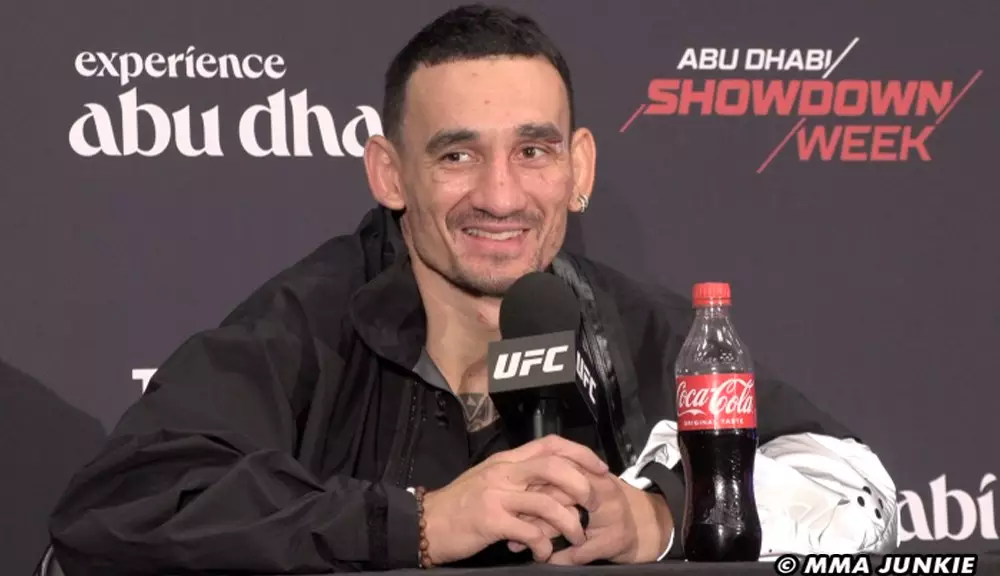In a shocking turn of events at UFC 308, Max Holloway, a name synonymous with resilience and excellence in mixed martial arts, faced his first career knockout loss against Ilia Topuria. Holloway’s reaction to this significant setback sheds light on his character and mindset as an athlete. Rather than wallowing in the disappointment of defeat, he displayed an admirable ability to compartmentalize emotion from analysis, providing a rich case study in sports psychology and professional conduct.
The bout, which took place at the Etihad Arena, illustrated the unpredictable nature of combat sports. Holloway (26-8 MMA, 22-8 UFC), known for his relentless striking and conditioning, appeared to be finding his rhythm early in the fight. Despite the eventual outcome, his observations post-fight reveal a fighter who was acutely aware of the nuances within the match. “Game of inches,” he affirmed, indicating that one crucial moment — a movement or a punch — can drastically shift the fight’s trajectory.
His acknowledgment of feeling good and landing his attacks suggests he recognized the flow of the fight. Observing his performance with clarity is crucial for any fighter seeking improvement. He expressed surprise at the scorecards, reflecting the self-belief that has been a cornerstone of his illustrious career. This kind of introspection not only showcases his maturity but highlights the importance of analyzing fights critically, both in victory and defeat.
Following such a high-profile loss, discussions about future pursuits naturally follow. Holloway commented on the effectiveness of his weight cut, noting that it was one of his best at featherweight. Yet, intriguingly, he opened the door to a transition to lightweight. This potential shift isn’t merely about weight; it’s about fresh opportunities and enticing matchups. Holloway’s contemplation of moving up indicates a strategic mindset, as he weighs the benefits of fighting at 155 pounds against the backdrop of his recent struggles at featherweight.
It’s clear that the fighter is seeking a clearer path to reclaiming championship glory. With four consecutive title fight losses at featherweight, Holloway is likely aware of the need for a shift in strategy to reinvigorate his career. Moving to lightweight offers the prospect of facing new challengers and revitalizing his approach in the octagon. It’s this kind of forward-thinking that keeps professional athletes competitive and relevant in a dynamic sport like MMA.
What stands out in Holloway’s post-fight demeanor is his perseverance. After the loss, he emphasized, “You guys are going to see me back; it’s not a funeral.” Such a statement resonates deeply, indicating a refusal to be defined by a singular defeat. Instead, he embraces the journey of a fighter, recognizing that losses are part of growth rather than a definitive end.
His decision to take time with his team to reassess their strategy demonstrates an understanding that improvement cannot be rushed. In a sport where the margin for success is razor-thin, this reflective period is crucial. Holloway’s capacity to maintain an optimistic perspective amidst adversity exemplifies a mental fortitude that is as vital as physical prowess in MMA.
Max Holloway’s post-fight reflections following his knockout loss at UFC 308 offer a compelling narrative about resilience, analysis, and future aspirations in mixed martial arts. His ability to separate emotion from the analytical side of competition underscores a mindset focused on growth, learning, and ultimately, return. Whether he decides to remain at featherweight or embrace a new challenge in the lightweight division, Holloway remains a fierce competitor whose journey continues to inspire fans and future fighters alike. The fight game is unpredictable, but with Holloway’s tenacity and outlook, the world of MMA can expect to see him rise again.

